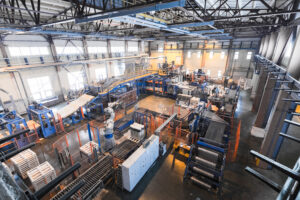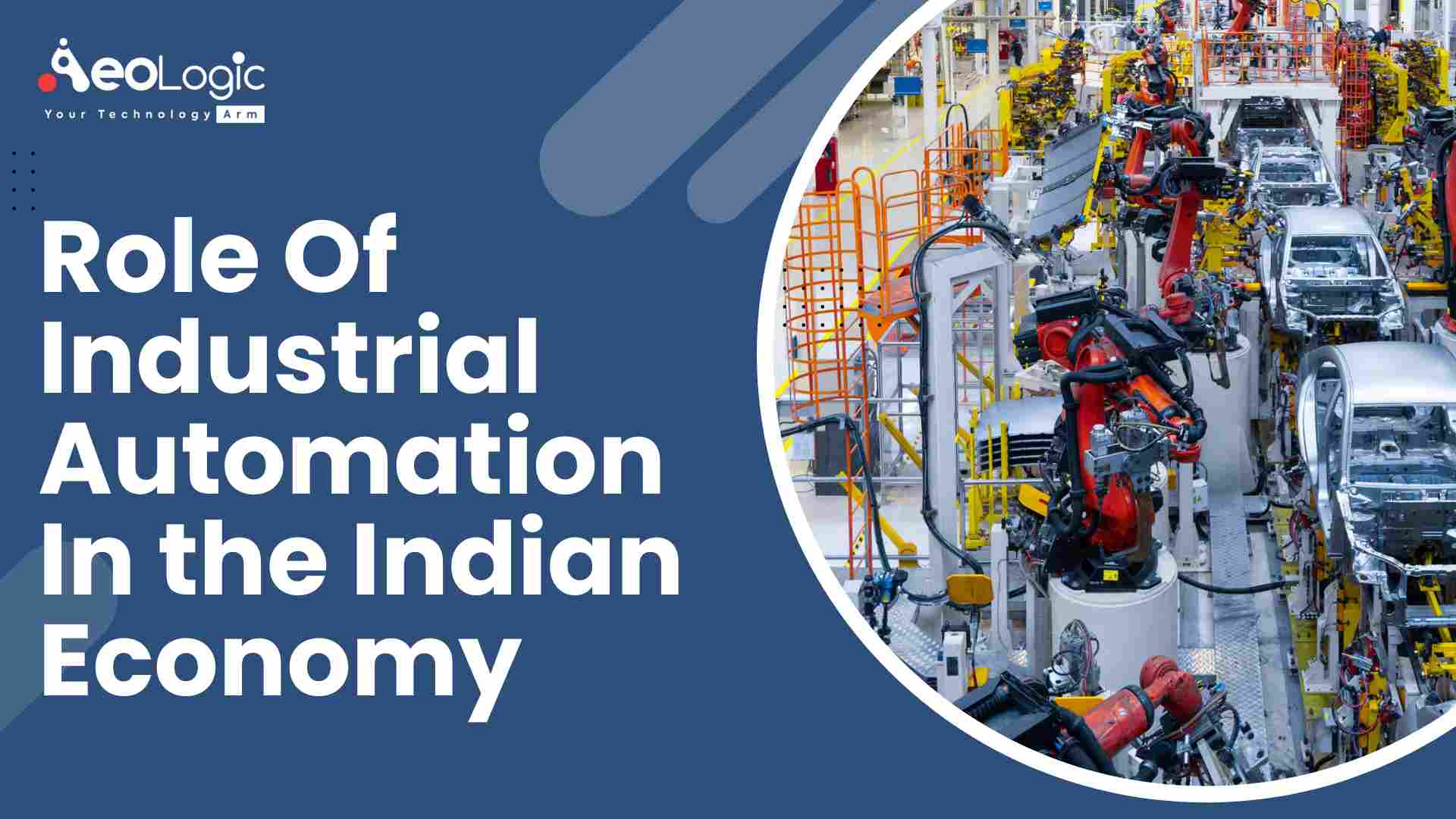We are in the middle of an advanced industrial revolution. It is allowing complex machinery and processes to be managed much more effectively and affordably than ever before. Hence, by reducing the need for human labor in redundant and dangerous processes. The role of industrial automation in the Indian economy is allowing businesses to focus on critical operations, energy usage, and safety. Because of a number of technological changes that are affecting our industries, there is an urgent requirement for high-end, precise products that can only be met by high levels of productivity. Engineering systems, automated manufacturing, and industrial automation all are playing a role here.
Also read: Automation Boosts Additive Manufacturing Production
Role of Industrial Automation in the Indian Economy
Industry 4.0 and automation, are presently taking shape thanks to technologies such as AI, 5G, advanced automation, advanced sensing, and many others. These are significantly altering how various industries are operating and how their processes are carried out. Moreover, the role of industrial automation in the Indian economy is to emphasize efficiency and optimization. All while significantly reducing the possibility of errors. Whereas, in a manual process where the margin of error can reach up to 10% when humans carry out the work, an automated platform can mitigate it significantly.
Boost your business performance with our automation solutions!
Statistics for the Role of Industrial Automation in the Indian Economy
There is a huge evolution going on in the manufacturing industries of India, with the adaptation of industry 4.0, artificial intelligence, IoT, shifting to cloud computing software, and an increase in reliance on robotics, pneumatic and hydraulic automation in low-cost applications. Also, the manufacturing and services sector is experiencing a big jump in industrial output which can be observed taking place in various diversified industrial clusters in India.
Moreover, India itself is a growing economy thanks to its self-reliance on local production, and manufacturing in India has been soaring to new heights in the past couple of years.
Furthermore, industrial production in India is showing spikes reaching up to 10 – 12% in some months this year. This is way above the standard growth rates of 2.5 – 3.5% which have been persisting for the last 2 – 3 years due to the harsh industrial climate prevailing worldwide.

The Reasons Why Industrial Automation Is Important
In addition to isolated manufacturing firms, the following factors are pushing new market entrants into the industrial automation sector:
Cost-Efficiency: Since automation is requiring lesser human intervention. It is reducing production costs. Apart from that, implementing virtual and augmented reality, coupled with automation, is helping in increasing productivity in business models and facilitating learning.
Competitive Advantages: consequently, due to the nature of industrial automation technology, production is continuous and operational 24*7. As a result, it is providing competitive advantages in terms of increased productivity, capacity, and process quality. While reducing task errors and the cost of downtime.
Time Reduction: The time for information processing is decreased due to Automation 4.0. Moreover, for the storage and management of data generated by processes, the platform has a sizable capacity.
Flexibility and Scalability: On the other hand, a human operator is requiring training because the industrial sector is dynamic and the tasks are constantly changing. Since they can be tightly programmed in a constrained amount of time and are reconfigurable.
Maximized security: Machines may be given risky and dangerous tasks by the production line that are posing a significant risk to the workers. With collaborative robots, the robot & humans will be sharing a common workspace.
Monitored Control: The automated processes are monitored, controlled, and recorded. These will be generating the big data that helps to identify patterns, improve operations, and implement changes to prevent future task errors.
Also read: How Emerging Technologies Have Fueled The Growth Of The Indian Economy
Conclusion
At the same time, the role of industrial automation in the Indian economy is embracing Industry 4.0 at a reasonable pace and has observed exceptional growth as a result of recent automation advances. Furthermore, Industry 5.0 is a more recent trend that is emphasizing immediate customer service, personalization. And the integration of humans and cobots (collaborative robots) to be proactive in the new industrial automation model. As well as embracing new technological advancements.
Kindly contact us if you need help with integrating technologies into your business!
FAQs
What are the benefits of industrial automation?
Following are the benefits of industrial automation
- Increasing Production Rates
- Increasing Productivity
- Higher Efficient Material Use
- Enhancing Product Quality
- Improving Safety
Why is automation suitable for the Indian industry?
To stay competitive in the market for fast-moving consumer goods. India is requiring to automate its industries and move from manual labor to robotized manufacturing. The motivation is obvious by giving repeatable, reliable accuracy to the production process. Therefore, reducing the failure rate and increasing the product quality.









